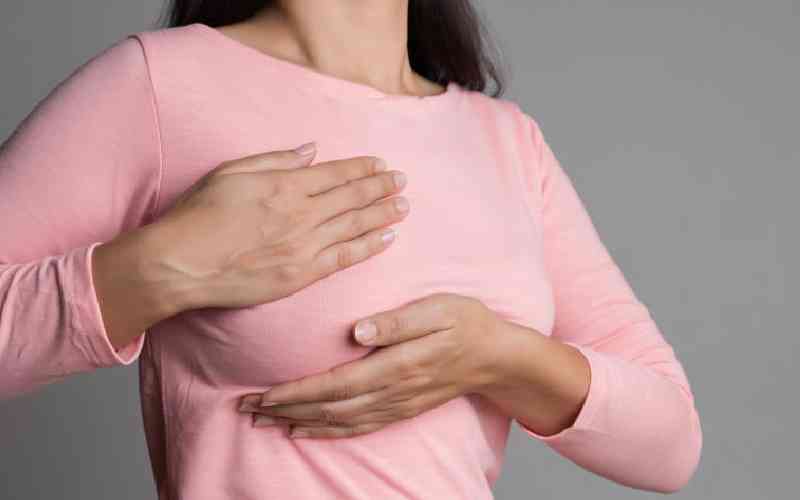
Breast cancer presents in several forms, according to Dr Esther Wanjohi, a reproductive health specialist at Nairobi Hospital.
"It could be a sore spot, a lump, a disturbed skin patch, or any kind of disturbance on the breast," Wanjohi points out. Her counterpart, Dr Marsha Rose, a medical officer with Mater Hospital, says that with a simple self-exam many women can help nab breast cancer development before it gets worse.
Breast Self-Examination (BSE), Masha says, can help one spot a lump, a pimple, or an unusual mass. She adds, as long as a person has breast mass, they are potentially susceptible to breast cancer. "Through touching and feeling, one can detect unusual pimples or growths which may be indicative of possible breast cancer," says Marsha. But lumps and pimples are not the only signs of the presence of breast cancer.
According to Marsha, there are other subtle symptoms that many ignore, but are equally helpful in determining the presence of breast cancer.
"We advocate that people be keen on any noticeable changes. The colour, shape, consistency, and symmetry of the breast should all be able to raise a red flag. Any breast with a rough, lemon-like skin can be a pointer to breast cancer; as is sudden colour changes, or lack of symmetry (when one breast is bigger than the other)," says the medic.
When was the last time you chose ‘you’?Besides these signs, one should also be on the lookout for lifestyle and other risk factors. Anyone with a family member who has suffered from breast cancer has a 50 per cent chance of getting the disease.
 The Standard Group Plc is a multi-media organization with investments in media
platforms spanning newspaper print
operations, television, radio broadcasting, digital and online services. The
Standard Group is recognized as a
leading multi-media house in Kenya with a key influence in matters of national
and international interest.
The Standard Group Plc is a multi-media organization with investments in media
platforms spanning newspaper print
operations, television, radio broadcasting, digital and online services. The
Standard Group is recognized as a
leading multi-media house in Kenya with a key influence in matters of national
and international interest.










